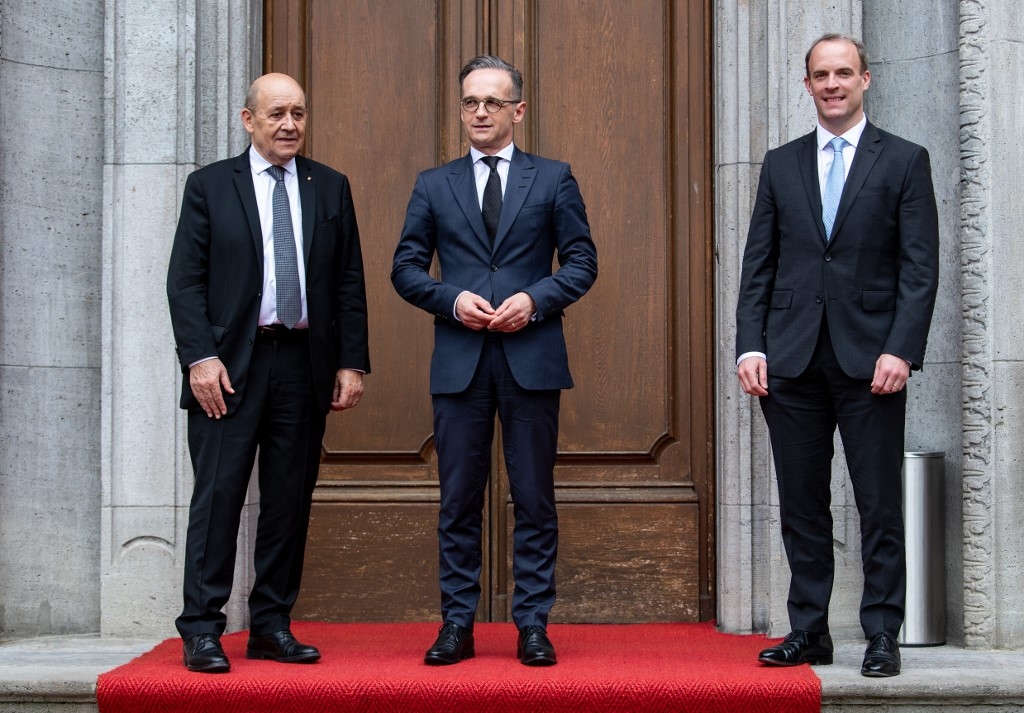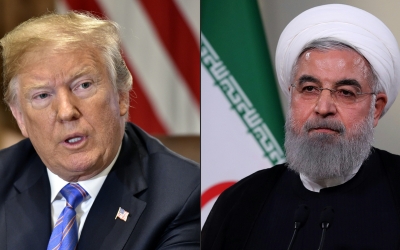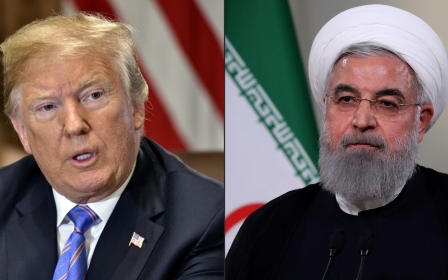European powers refuse to back US plan to extend UN arms embargo on Iran

Britain, France and Germany say they will not back US efforts to unilaterally trigger the reimposition of a UN arms embargo on Iran, but are interested in talks with Tehran over its ongoing violations of a 2015 nuclear accord known formally as the JCPOA .
The sanctions in question are set to expire in October, but the United States has been working to extend them. The trio in a statement on Friday said they would not support such a move by Washington.
If the UN Security Council does not extend the embargo, Washington has threatened to trigger a so-called snapback of all UN sanctions on Iran, using a process outlined in the nuclear deal that Washington left in 2018. Such a move would likely finish off the nuclear accord.
"We firmly believe that any unilateral attempt to trigger UN sanctions snapback would have serious adverse consequences in the UN Security Council," the foreign ministers of the three European countries (E3) said in a statement.
"We would not support such a decision, which would be incompatible with our current efforts to preserve the JCPOA," they said after discussing Iran in Berlin.
European diplomats are working on a compromise, but it is unclear whether they will be able to satisfy the United States as well as Russia and China, which like the E3 also remain in the deal.
Speaking to reporters on Friday in a teleconference call, the US special envoy to Iran, Brian Hook, declined to comment on a potential compromise.
"Nobody can argue that Iran’s behaviour since 2015 merits a lifting of the arms embargo," he said.
The E3 ministers said they hoped to hold a ministerial meeting with Iran to discuss its violations of the nuclear deal and assess a mechanism they had launched in January aimed at resolving differences within its framework.
"We remain committed to the JCPOA and, in order to preserve it, urge Iran to reverse all measures inconsistent with the agreement and return to full compliance without delay," they said.
Middle East Eye propose une couverture et une analyse indépendantes et incomparables du Moyen-Orient, de l’Afrique du Nord et d’autres régions du monde. Pour en savoir plus sur la reprise de ce contenu et les frais qui s’appliquent, veuillez remplir ce formulaire [en anglais]. Pour en savoir plus sur MEE, cliquez ici [en anglais].





